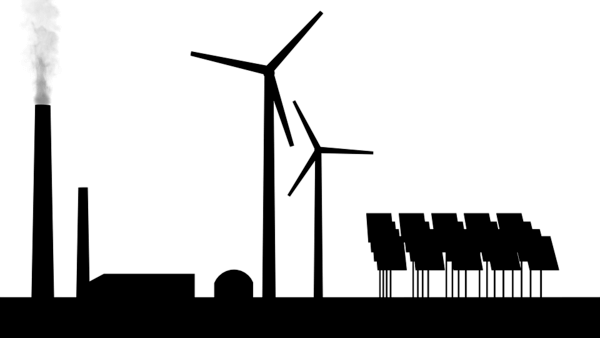News Release from windfair.net
Wind Industry Profile of
Quo Vadis, Planet Earth?
Two studies that, taken together, give a clear picture. While the 'Production Gap Report' for the first time looked at the difference between the objectives of the Paris Agreement and the planned coal, oil and gas production of the countries, the Potsdam Institute for Climate Impact Research (PIK) dealt with the advantages and disadvantages of the three most important ways of decarbonisation.
The Production Gap Report authored by leading research institutions and the United Nations, comes to a frightening conclusion. The nations of the world are currently well on the way to producing more than twice as much coal, oil and gas as can be burned in 2030. As a result, the outcome of the Paris Climate Agreement - to limit the rise in global temperature to 1.5°C - can't be achieved at all.
"We’re in a deep hole – and we need to stop digging,” says Måns Nilsson, Managing Director of the Stockholm Environment Institute (SEI), co-authoring the analysis. "Despite more than two decades of climate policy making, fossil fuel production levels are higher than ever."
An international research team led by the Potsdam Institute for Climate Impact Research (PIK) presents the solution in another study: By combining several systems of computer simulations, the advantages and disadvantages of the three most important paths to decarbonisation were quantified. The result: an energy shift towards electricity from solar and wind brings most advantages for the health of mankind and planet.
“When looking at the big picture – from the direct emissions of power installations, to the mining of minerals and fuels for their construction and operation, to the landscape necessary for the energy supply infrastructure – we found that the best bet for both people and environment is to rely mainly on wind and solar power,” Gunnar Luderer explains. He is lead author and deputy chair of PIK’s research domain on transformation pathways. “The main winner of decarbonisation is human health: switching to renewables-based electricity production could cut negative health impacts by up to 80 per cent. This is mainly due to a reduction of air pollution from combusting fuels. What is more, the supply chains for wind and solar energy are much cleaner than the extraction of fossil fuels or bioenergy production.”

An urgent change in power production is required (Image: Pixabay)
The researchers have included the fact that an energy transition is always associated with certain problems. Anders Arvesen from the Norwegian University of Science and Technology (NTNU) says: “In combining two pairs of analytical spectacles, we were able to look at a wide range of environmental problems, from air pollution to toxicants, from finite mineral resources needed to manufacture wind turbines to the extent of lands transformed into bioenergy plantations if relying on negative emissions. This is a promising approach also to tackle other sectors, like buildings or the transport sector. Our study delivers even more very good arguments for a rapid transition towards a renewable energy production.“
Meanwhile, most measures to tackle the climate crisis still include reducing emissions, but Inger Andersen, head of the UN Environment Programme, makes it clear that most countries still focus on fossil fuel production. However, most of the promises of action made under the Paris Agreement don't even mention changes in energy production.
The UK is a "striking" example of this imbalance, says Cleo Verkuijl of the SEI in Oxford, according to the Guardian. The country is the first major economy having committed to net zero emissions by 2050, while at the same time subsidising the production of fossil fuels at home and abroad, and intends to extract "every drop of oil and gas" from its North Sea fields. In recent years, the British oil and gas industry has received 176 million pounds more in state support annually than it has paid in taxes, the report says.
The solution seems to be quite clear, comparing the results of the two studies. Sometimes 1+1 really means 2.
- Author:
- Katrin Radtke
- Email:
- press@windfair.net
- Keywords:
- study, report, Production Gap Report, PIK, research, climate change, Paris Agreement, oil, gas, fossil, solar, wind, renewable energy, energy transiton

























